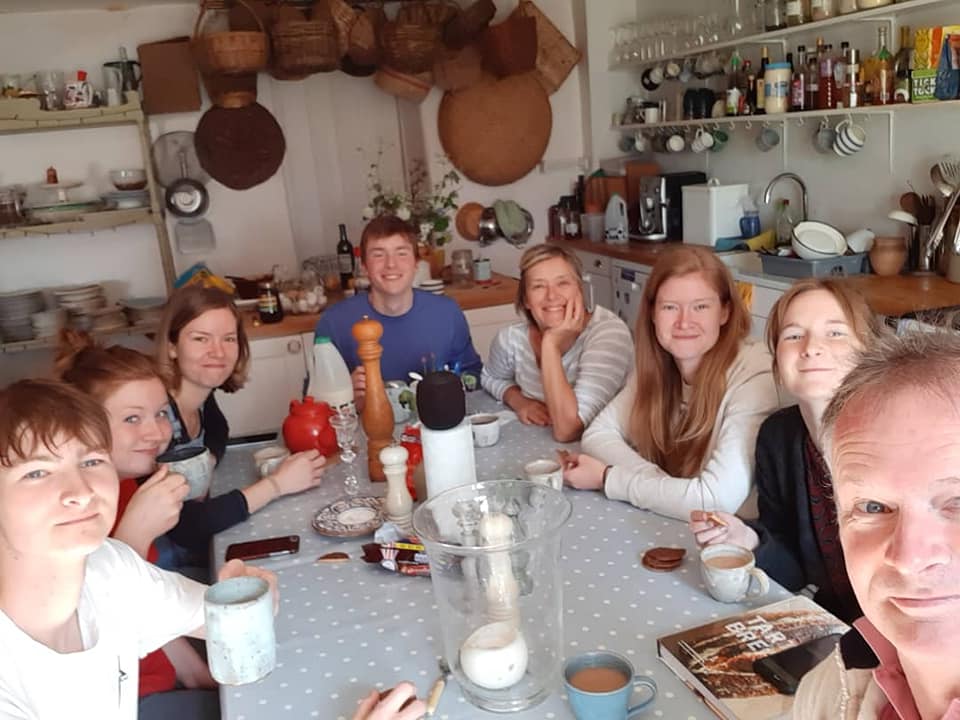Now that we’re a few weeks into lockdown, I’ve been thinking a lot about how this pandemic might be affecting the way we do relationships now and in the future.
For example,
- Is lockdown causing a surge in domestic violence and divorce as some are suggesting? Or are couples hankering down and even enjoying their extra time together?
- With marriages now temporarily banned, will this make couples even less likely to marry in the future? Or will couples rediscover their hunger for certainty and security?
- How is lockdown affecting couples who are in the early stage of a relationship? Have fledgling relationships benefited more by living together or via whatsapp and zoom?
I suspect how this pans out will depend a lot on the way we think about the future.
It’s obviously essential to plan a little bit ahead – what will we eat, do we have toilet paper, how safe is my job, how will we pay the rent. Beyond that the risk is that in worrying about a future over which we have much less control than usual, we fail to cope and thrive and neglect to be grateful for what we have in the present.
That is bound to affect relationships and how we think about them.
Some of us definitely think – and therefore worry – more about the future than others.
For those of us organisers and planners who are always thinking about the future – career, mortgage, savings, holiday plans, marriage, children – the present uncertainty will be especially unnerving because we have no real idea how this thing will pan out.
I am very future-oriented.
Believe it or not, I consider myself deeply fortunate to be locked down with my wife Kate, six young adult children and one son-in-law. We live on a smallholding and have pigs, lambs, chickens, dogs and a horse.
Despite having an A&E doctor in the house whose day/night job includes treating very sick covid patients, none of us have yet had an obvious case of covid – although I have had three weeks of anosmia, arguably a good thing in a house of nine people!
But all of these mouths need feeding. Apart from keeping careful watch on our food and domestic supplies, both human and animal, I am constantly thinking about how stuff is going to be paid for. That makes me especially future-oriented.
My particular challenge is therefore how to accept the uncertainty this brings – ‘stop worrying about tomorrow’ – and be grateful for the extraordinary privilege of having all of my children around for an unexpected bonus time.
We’re all desperate to hear what the experts have to say about covid and lockdown and the economy. But even they are presenting a wide range of possible scenarios. When we look back in a couple of years time, no doubt we’ll find some expert who called it completely right. Well done them. But since we have no idea who that skilled or lucky forecaster is now, we have no choice but to live with the unknown and uncertainty!
I’ve been told this is a bit like living with cancer. Doctors give a range of possible scenarios based on experience and statistics. But in the end which of those scenarios pans out even they don’t know.
The secret is to accept that we don’t know and be OK with it. Embrace the uncertainty, acknowledge the limits of our control, and engage more fully with the present.
How might this help us think about relationships?
In theory those who spend most time thinking about the future – those with careers, marriage, children, savings, mortgage, holiday and other plans – are probably the ones who have been knocked most off track by covid and the lockdown. They have the most to lose, the most change to face, the most uncertainty. They have lost control.
This is why pundits are talking about a possible rise in domestic violence and divorce. Frustration and loss of control boils over easily into arguments.
But it may also be that the same future-oriented people are more pragmatic. If we are planning for A in the future, we need to do B now. If we are less clear about what A looks like in the future, then the pragmatic solution is to wait it out and be OK with that.
What about marriage? Will covid change the track of marriage?
One possibility is that because weddings are banned, maybe couples will stop thinking about weddings.
But maybe they’ll think about them more. When times are uncertain, we need certainty more than ever. The nearest we get to a guarantee in relationships is the offer and promise to love together forever. That’s marriage.
What about cohabiting?
Some couples have chosen – or been forced by circumstances – to spend lockdown apart. Others have been thrown together. Perhaps the living apart group will do well because they communicate with more intent on their whatsapp and zoom calls. And since one of the big risks with cohabiting is inertia – making it harder to leave a less-than-hoped-for relationship – maybe the end of lockdown will give some of the living together group an easier exit route than they might otherwise have had.
In the end, I don’t know.
Personally, I’m enjoying my lockdown a great deal more now that I acknowledge that I just don’t know what the future brings. I’ve had to let go of my own desire to control my – and my family’s – future. And so I have accepted my lack of control and uncertainty about how to plan for the future.
So how will relationships change in a time of uncertainty?
I don’t know. And I’m OK with that.

